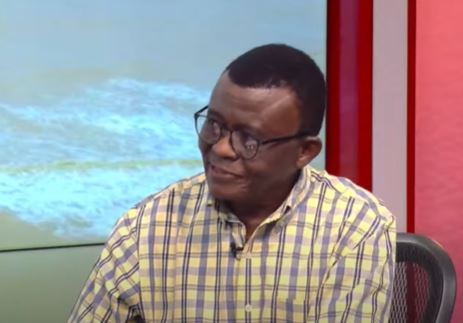A former UN Senior Governance Advisor, Professor Baffour Agyeman-Duah, has expressed concern about the government’s perception of the illegal mining (galamsey) crisis in the country.
He pointed out that while the public and various organisations are making efforts to combat galamsey through public statements, the government's understanding of the crisis appears to differ significantly.
Speaking on UpFront on Wednesday, September 11, Prof Agyeman-Duah voiced his disappointment with the statement issued by the Ministry of Lands and Natural Resources regarding the galamsey menace.
According to him, the government's statement failed to convey the gravity of the situation and questioned whether government officials are aware of the pollution of river bodies and destruction of lands.
"I wonder if these people do drive on our ways and they are alerted and they see the river bodies over which we drive on the bridges.
“...So for the government to issue this statement is a non-starter in my humble view. The problem is huge and I think the government has been lacking the nerves to tackle it over the years to a point where it has completely gone out of control,” he said.
His comment follows the statement issued by the Lands Ministry on Wednesday, September 11, reiterating the government's commitment to promoting sustainable and legal mining practices in Ghana.
The ministry stressed that responsible mining remains a priority to protect the environment and ensure the well-being of communities impacted by mining activities.
The statement further noted that following a high-level meeting on Wednesday, stricter guidelines were issued to all Regional Ministers and their security councils to strengthen the fight against illegal mining.
In light of this, Prof Agyeman-Duah criticised the government's approach of fighting against galamsey by working through regional ministers as “useless.”
He argued that the country’s centralised governance system has been ineffective in resolving the crisis.
“We have a centralised government and it’s what the government or the president wants is what the ministers will do in the region. They represent the president, the same with the District Chief Executives and that tells you how this centralised governance system we have is failing us.
“Those in the districts and the regions are almost powerless in enforcing measures unless the national government takes the action so this statement that you just read, for me it’s a non-starter,” he said.
Latest Stories
-
Gold Fields Ghana Foundation challenges graduates to maximize benefits of community apprenticeship programme
59 mins -
GBC accuses Deputy Information Minister Sylvester Tetteh of demolishing its bungalow illegally
1 hour -
Boost for education as government commissions 80 projects
1 hour -
NAPO commissions library to honour Atta-Mills’ memory
2 hours -
OmniBSIC Bank champions health and wellness with thriving community walk
2 hours -
Kora Wearables unveils Neo: The Ultimate Smartwatch for Ghana’s tech-savvy and health-conscious users
2 hours -
NDC supports Dampare’s ‘no guns at polling stations’ directive
2 hours -
Police officer interdicted after video of assault goes viral
2 hours -
KNUST’s Prof. Reginald Annan named first African recipient of World Cancer Research Fund
2 hours -
George Twum-Barimah-Adu pledges inclusive cabinet with Minority and Majority leaders
3 hours -
Labourer jailed 5 years for inflicting cutlass wounds on businessman
3 hours -
Parliament urged to fast-track passage of Road Traffic Amendment Bill
3 hours -
Mr Daniel Kofi Asante aka Electrician
3 hours -
Minerals Commission, Solidaridad unveils forum to tackle child labour in mining sector
3 hours -
Election 2024: Engagement with security services productive – NDC
3 hours

